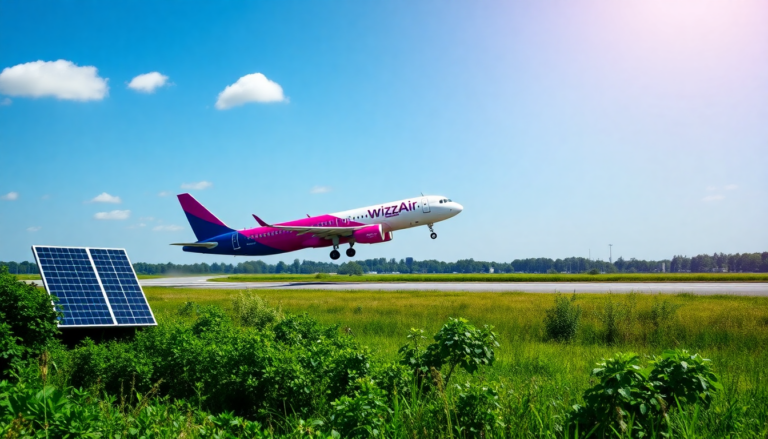Argomenti trattati
In today’s world, where our planet’s health is more important than ever, Wizz Air is making waves as a leader in sustainable aviation. For the fifth year running, the airline has been recognized as the most sustainable low-cost carrier by the World Finance Sustainability Awards. This accolade isn’t just for show; it symbolizes a genuine commitment to transforming air travel for the generations to come. Who says profitability and environmental responsibility can’t go hand in hand?
The story behind Wizz Air’s sustainable practices
The World Finance Sustainability Awards have always spotlighted those who don’t just play the game but are changing it. Wizz Air’s rise to becoming the benchmark for sustainability in the low-cost airline sector is rooted in strategic initiatives and a solid operational model that puts ecological impact front and center. Winning this award reflects the airline’s unwavering dedication to excellence in environmental performance—a standard that others in the industry are now aspiring to meet.
At the heart of Wizz Air’s achievements is its active role in the Zero Emissions Aviation Alliance and its involvement in global climate initiatives like COP29. These efforts showcase a commitment to tackling climate change on a larger scale, proving that Wizz Air isn’t just about its internal operations; it’s part of a global movement pushing for sustainability. Isn’t it inspiring to see an airline take such a proactive stance?
Technical innovations driving sustainability
Wizz Air’s impressive operational efficiency comes from its modern fleet of 237 aircraft, notably featuring the Airbus A321neo. This cutting-edge model isn’t just a pretty face; it reduces fuel consumption by an impressive 20% and cuts noise emissions by 50%. These aren’t just numbers—they represent a significant shift towards greener aviation practices.
The airline has also embraced smart fuel management solutions and uses electric energy for ground operations, showcasing a forward-thinking approach to lowering its carbon footprint. Plus, the introduction of lighter components in its aircraft highlights Wizz Air’s commitment to innovation and continuous improvement. Isn’t it fascinating how technology can drive sustainability?
Perhaps the most remarkable achievement is Wizz Air’s reduction of average carbon emissions to just 52 grams per passenger. This figure isn’t just a statistic; it reflects the airline’s dedication to minimizing its environmental impact while still offering affordable travel options. What if every airline followed suit?
The importance of sustainability in the aviation industry
According to a recent United Nations report, only 15% of the targets set by the 2030 Agenda are currently on track. This sobering statistic underscores the urgent need for collective action across all sectors, especially aviation. The effects of climate change are becoming increasingly visible, from devastating wildfires to biodiversity loss and natural disasters. Wizz Air’s initiatives serve as a hopeful model for the industry, proving that proactive measures can lead to substantial outcomes.
But Wizz Air isn’t alone in this journey. Other players in the travel sector, like Aeroporti di Roma and Amex GBT Egencia, are also weaving sustainability into their operations. This collaborative effort is vital for reshaping the industry, ensuring that future travel experiences are not only enjoyable but also responsible. How can we all contribute to this vital transformation?
As we glance toward the horizon, Wizz Air’s journey illustrates that a sustainable aviation industry is not just a dream—it’s becoming a reality. The invitation stands for all of us: let’s embark on this journey together toward a more sustainable world, where travel and environmental stewardship truly go hand in hand. Are you ready to join the movement?

